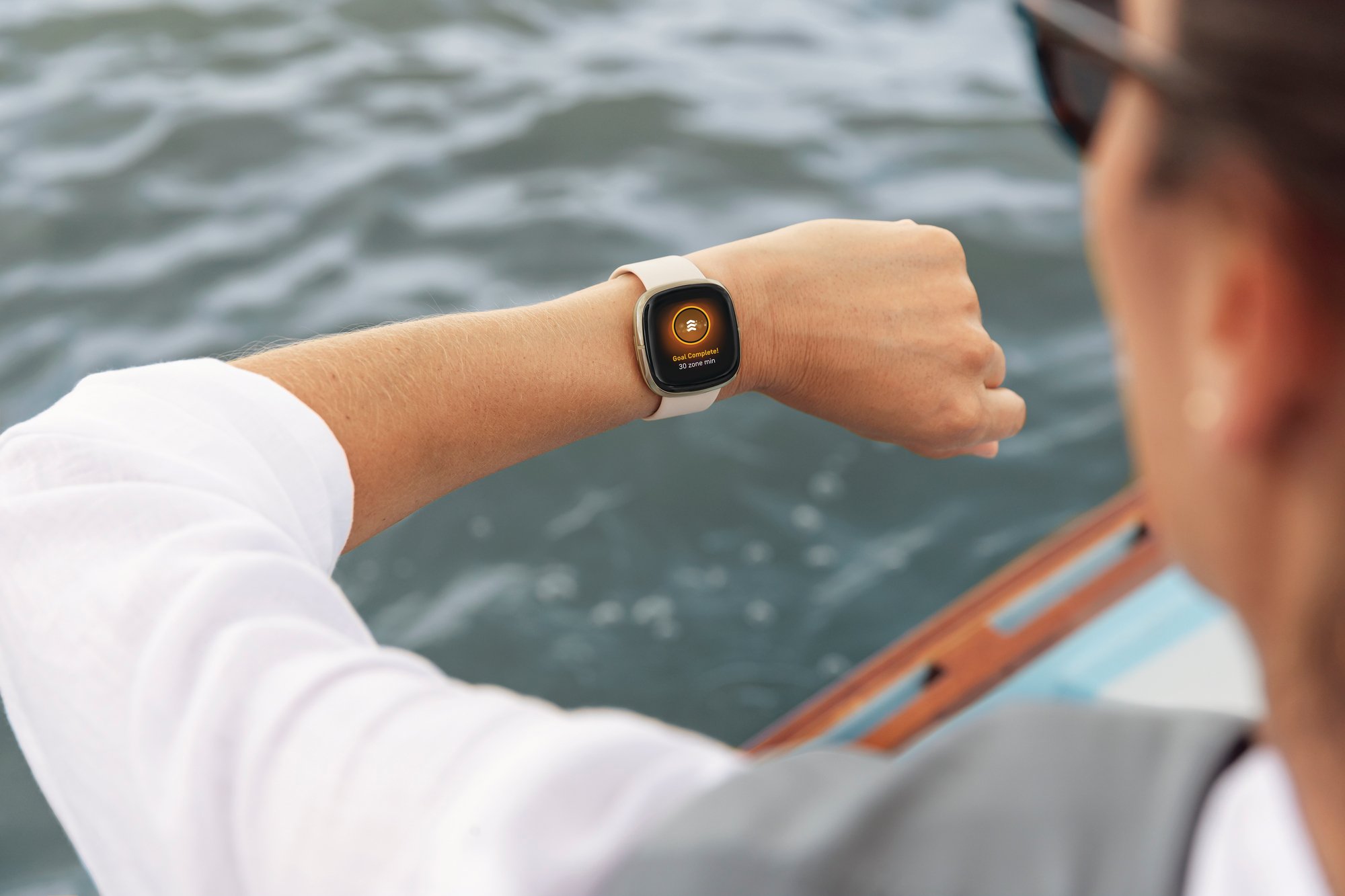Following a series of leaks, Fitbit (FIT +0.00%) has officially launched the Charge 4, the newest version of its flagship fitness tracker. The wearable gadget looks nearly identical to the Charge 3 but packs in a slew of notable new features that make it a meaningful refresh following the Charge 3's release in late 2018. With the Charge 4, Fitbit is expanding beyond just counting steps, adding more health metrics for users to track.
Here's what investors need to know about Fitbit's latest and greatest tracker.
Charge 4. Image source: Fitbit.
Competing with Apple Watch
The wearable tech company has added built-in GPS, the ability to control Spotify, a relative SpO2 sensor, and Fitbit Pay. Many of those features have historically been exclusive to higher-end devices like Fitbit's smartwatches, and bringing them to the $150 Charge 4 will help Fitbit better compete with Apple (AAPL +0.31%) Watches -- like the Series 3 that continues to sell well at $199 -- that have similar functions.
Fitbit is also introducing an entirely new metric called Active Zone Minutes, which is billed as a "personalized heart rate metric" that measures how much time the user spends in certain customized heart rate zones. Different people have different heart rate thresholds for different activities, so the idea is to leverage what Fitbit's digital health platform already knows about you to work toward a weekly goal of 150 Active Zone Minutes. (There is a Special Edition that costs an extra $20 for a special band.)
Battery life remains one of Fitbit's strongest advantages over the Apple Watch, with Charge 4 boasting seven days of battery life. That longevity is how Fitbit can offer sleep tracking via its Sleep Score metric. The company recently activated the dormant SpO2 sensors, which monitor blood oxygen levels, in other devices. Fitbit is seeking FDA clearance to use the sensor to help diagnose sleep apnea.
The Google acquisition looms
Fitbit expanding its digital health platform underscores why Alphabet (GOOG +1.05%) (GOOGL +1.24%) subsidiary Google is in the process of trying to acquire it. Digital health has emerged as a key competitive battleground among tech giants, and Google is still trying to catch up to Apple. That underlying platform rivalry is largely why Fitbit and Apple Health don't play well together (users can only sync data between the platforms with third-party services).
Due to the pending $2.1 billion acquisition, Fitbit has stopped hosting earnings calls to discuss its business. Both revenue and earnings missed estimates in the fourth quarter, and Fitbit came in No. 5 in the wearables market during Q4, according to IDC.
Generally speaking, management commentary is incredibly important right now, because the COVID-19 pandemic has devastated broad swaths of the global economy. But as long as Google can secure regulatory approval for the acquisition, those qualitative details won't be that relevant to public investors. Fitbit and Google still expect to close the deal at some point in 2020, according to regulatory filings from both companies.








